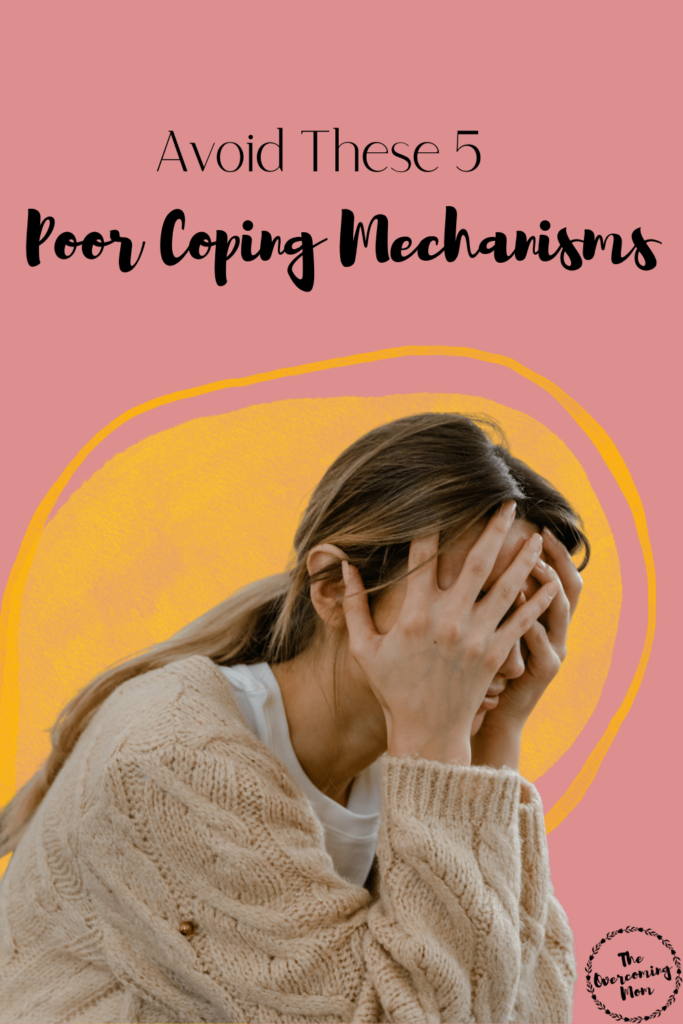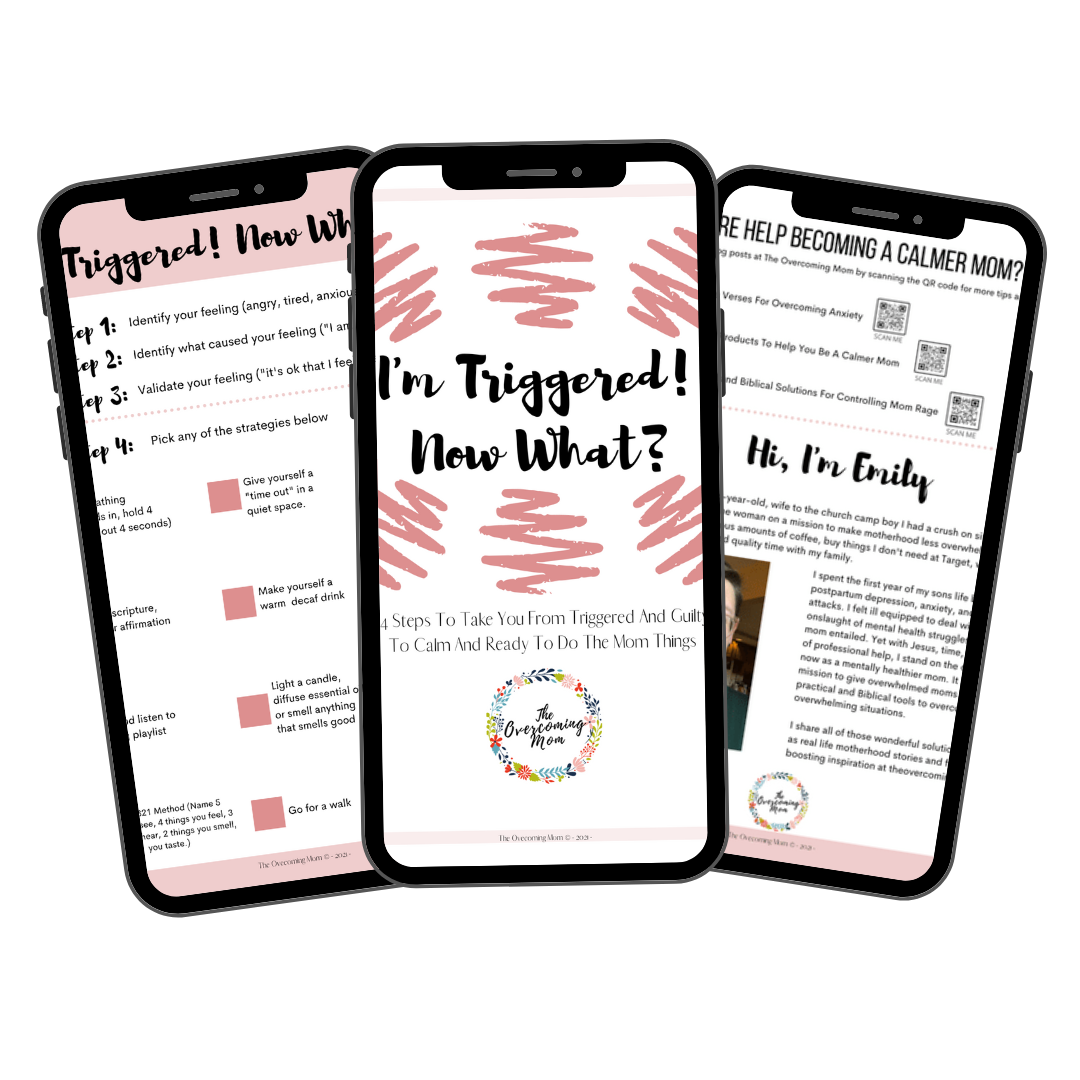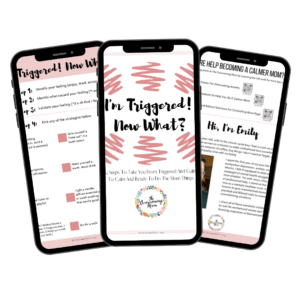This page may contain affiliate links. As an Amazon Associate I earn from qualifying purchases. If you want more information, please see my Affiliate Disclosure.


It’s pretty easy for us to realize that life is VERY stressful. And the reality is, most of us have really crappy ways of managing our stress! In fact, you may realize after reading this that you preferred coping mechanisms may not be as effective as you think they are, or even that your preferred coping mechanisms are more destructive than helpful! Uncovering our poor coping mechanisms is the first step in developing healthier, more effective coping skills that will actually help us relieve stress.
Many of the poor coping mechanisms we fall victim to feel effective in the moment, but later on can become destructive habits. In this article, we’re going to go over 5 unhealthy coping mechanisms that are commonly used, why they’re ineffective, and how we can start implementing healthier coping skills into our lives. Let’s face it, life is never going to stop being stressful. It’s about time we learn how to manage that stress effectively!
What Are Coping Mechanisms?
Coping is defined as the thoughts and behaviors mobilized to manage internal and external stressful situations. Many of these coping mechanisms can be unconsciously done, such as taking deep breaths when you’re overwhelmed. While other coping mechanisms are done with more intention to ease stress.
There are two styles of coping, as defined by this study published by the American Psychological Association.
- Reactive Coping – When you respond to the stress as it is happening
- Proactive Coping – The things you do to potentially prevent future stress from happening
Among those two coping styles, there are also four distinct categories that coping mechanisms can fall into (which I have pulled from this study)
- Problem-Focused Coping Skills- which addresses the problem causing the distress: Examples of this style include active coping, planning, restraint coping, and suppression of competing activities.
- Emotion-Focused Coping Skills- which aims to reduce the negative emotions associated with the problem: Examples of this style include positive reframing, acceptance, turning to religion, and humor.
- Meaning-Focused Coping Skills- Meaning-focused, in which an individual uses cognitive strategies to derive and manage the meaning of the situation
- Social Coping/Support Seeking- in which an individual reduces stress by seeking emotional or instrumental support from their community.
Not all defense mechanisms are created equal. Though there’s many things we can do to cope with stress, some of them may feel good in the moment but hurt us later. Typically, the coping mechanisms we should be using won’t always have an immediate reaction, but the results in the long run make them worth it.
Why Do I Even Need Good Coping Mechanisms?
According to The American Institute of Stress:
- About 33 percent of people report feeling extreme stress
- 77 percent of people experience stress that affects their physical health
- 73 percent of people have stress that impacts their mental health
- 48 percent of people have trouble sleeping because of stress
Excessive stress causes people to miss work, events, and even die. So literally, stress is killing you! Many of our modern health problems exist because of high stress levels. Learning how to manage stress in a healthy way will literally help you live longer!
Meanwhile, many poor coping mechanisms are sometimes more dangerous than the stress itself. For example, excessive drinking or drug use can easily lead to substance use disorder, which is definitely deadly. Same with overeating, reactive and aggressive behavior, etc.
As a mom, I also notice how my stress levels effect my family. How I react to stressful events dictates how my children react to them. If I am having a hard time reacting to difficult situations in a healthy way, then it can have dangerous effects on my family. As parents, our ability to handle difficult emotions make a difference in how our children handle them too. Even if we’re still in the process of learning good coping skills, our growth will bring a positive change to our family.


Using Substances To Make Stress Go Away
Before diving into this, I want to preface this point by saying that I’m not trying to keep you from having a good time. But, before participating in illicit substances, such as illegal drugs or alcohol, consider the state of mind you’re in. If you are using substances, such as drugs or alcohol, as a means to cope with stress, that is absolutely a recipe for substance abuse and alcohol abuse.
Recreational drugs, misusing prescription drugs, and/or alcohol use can feel like a good way to loosen up initially, but in reality all it does is mask the root cause of your stress. When we use drugs or alcohol as a way to cope with stress, we are in turn teaching our brain that we need that to manage. It’s similar to waking in the morning and feeling the deep need to down a cup of coffee, but much more serious and life threatening.
How To Get Help For Substance Use And Alcohol Use Disorder
If you are struggling with alcohol use or substance use, and are in need of help, please don’t be afraid to seek it. Below are links to various resources on how to get help for alcohol use disorder and substance use disorder.
- National Institute of Alcohol Abuse and Alcoholism
- Drugabuse.gov
- Celebrate Recovery
- Alcoholics Anonymous
Turning To Potentially Destructive Coping Mechanisms
As I stated above, using substances like drugs and alcohol as a means to cope can be a recipe for an addictive disaster. But there are other potentially destructive coping mechanisms that exist other than drugs and alcohol, such as:
- Excessive gambling
- Excessive spending or “retail therapy”
- Risky sexual behaviors
- Excessive overeating or undereating
- Other risky activities that have the potentially to seriously injure yourself
These poor coping mechanisms, just like all of the other ones listed, can feel good in the moment and provide instant gratification, but will often have negative outcomes when it’s all said and done. Often, short term feel-good actions don’t usually lead to positive outcomes.
Similar to drugs or alcohol, when we use destructive coping mechanisms to manage negative situations, we’re creating a dangerous bridge for our brain. That bridge makes it feel that in order to relieve stress, we must participate in destructive behaviors. In the end, those destructive behaviors pose more risk than benefit.
Dissociating, Or Attempting To Disappear From Stressors
Dissociating in its simplest form is a mental defense mechanism that allows us to basically mentally disappear from a stressful situation. In a way, it is a means of disappearing from the present moment and into something that feels simpler.
What are things we sometimes do to dissociate? Here’s a few examples:
- Excessive phone scrolling (sometimes referred to as doomscrolling)
- Excessive video game use
- Zoning out for lengthy periods of time
- Doing things with no recollection of starting
Dissociating can be a very serious mental health issue, especially if you are unaware of your dissociations. If that is the case, please consider seeking medical attention (I have linked to several resources for mental health services below).
For the majority of people though, dissociating can often feel like an innocent way to relax after a long day. When we do dissociative behaviors, such as excessive phone scrolling, it’s not always for the purpose of trying to catch up on your social media or even entertainment, but more like an escape from reality. When we are constantly trying to escape reality, we’re missing out on the opportunity to think critically and problem solve through our stressors.
Once again, this isn’t to bash your nightly TikTok scroll (I’d be calling myself out on that as well), but to make you look critically at why the nightly social media binge or video game marathon feels necessary to you. Is it to escape reality? If so, it may not hurt to investigate more behind that.
Ignoring Your Stress
Ignoring your stress is not quite the same as dissociating. In many ways, we dissociate unintentionally, but sometimes when we’re stressed we choose to intentionally ignore it. Choosing to intentionally ignore it, whether its by trying to “push through” or through toxic positivity self-gaslighting, can backfire more than help.
Though there’s many people who preach the benefits of pushing through the stress or “thinking positively” through it all, the truth is that toxic positivity can be more harmful than helpful. Ignoring the stress doesn’t make it go away, it simply leaves it unmanaged.
There is a healthy way to maintain positivity through stressful situations, but ignoring it or gaslighting yourself through it is not how to do it.
Projecting Your Stress Onto Others Around You
When you’re stressed, it becomes much easier to get frustrated at other people around you. Being stressed is not an excuse to emotionally punish those around you who have nothing to do with your stress.
What are ways we sometimes project our stress on others:
- Losing our cool with our children or family members easily
- Becoming impatient over situations that don’t usually render you impatient
- Starting arguments, or stonewalling during preexisting arguments
- Using crass language towards others when we are overly stressed
- “Venting” our stressful situations to people without the emotional means to understand what we’re dealing with, such as our children
Often projecting happens without us realizing it. For example, coming home from a stressful day at work and losing it on your kids for what feels like a valid reason doesn’t initially seem like projecting, but when you look deeper into it you may realize that your anger could have been an overstretch. These reactive emotional outbursts to negative events is another example of something that has an immediate effect of releasing uncomfortable emotions, but doesn’t give any long term solutions to the stress. Stressful times are never an excuse to treat people poorly.
So How Can We Develop Healthy Coping Mechanisms
If reading this has caused you to discover some poor coping mechanisms you have developed, understand that negative coping skills aren’t permanent, and can be changed. Just because you currently use maladaptive coping mechanisms to manage stress doesn’t mean you’re stuck doing so. You can develop positive coping strategies that in the end will be much more effective in managing stress.
Here’s a few ways to start:
- I have an entire article on how to develop healthy coping mechanisms that you can check out.
- Consider getting professional help. Working with a therapist can be a very effective way to identify your ineffective coping mechanisms and replace them with positive ones. At the end of this article I have links to various places that you can get professional help from a therapist.
- Lean on your community of loved ones. Having social support is vital in learning healthy emotion regulation. Having trusted loved ones willing to hold you accountable for your poor coping mechanisms, and support you in building healthier ones is an incredible gift to have. Whether you lean on the support of family, friends, or community groups, finding people on your side to hold you accountable and listen is a wonderful thing to have.
Resources
- Betterhelp – Is an online therapy service that makes therapy accessible and affordable for all people. They have a huge database of therapist with many specialties, and offer many ways to participate in therapy.
- Faithful Counseling – Is very similar to Betterhelp, but is a database of online Christian therapists. If you would prefer to receive therapy from a faith-based perspective, then this could be just for you.
- Brightside – offers online medication and therapy treatments for depression and anxiety. You can get an appointment with an online provider in as little as 48 hours, and each treatment plan is catered to your personal needs.










